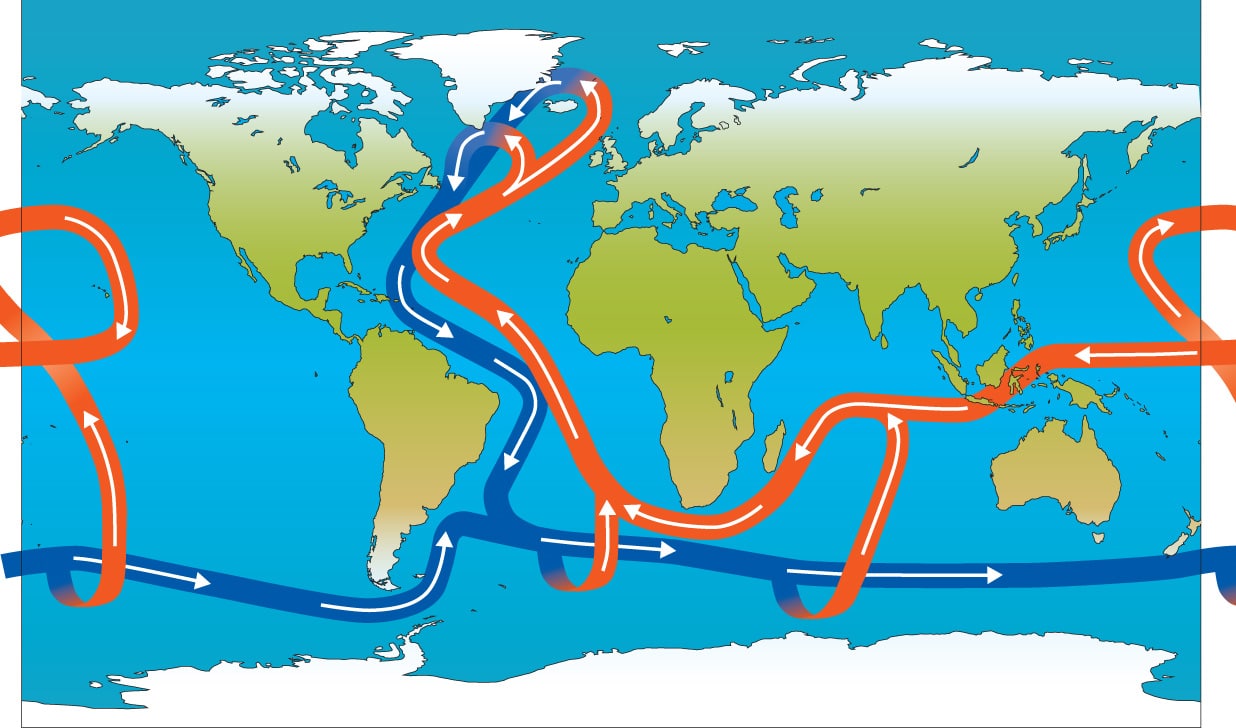Understanding the Atlantic Meridional Overturning Circulation

Concerns about the Atlantic Meridional Overturning Circulation (AMOC) have come to the forefront again. A recent study suggests that this vital ocean current system has not weakened since the 1960s. The AMOC, which includes the Gulf Stream, is essential for regulating global climate. It transports warm water from the tropics to the Northern Hemisphere. Any slowdown in this system could lead to severe climate disruptions. These disruptions may include extreme weather patterns and colder temperatures in Europe. While the study indicates stability, conflicting research and expert opinions highlight ongoing uncertainty regarding the AMOC’s future.
Findings from Recent Study
A study published in Nature Communications presents new insights into the AMOC’s strength. Researchers analyzed data over the past six decades, concluding that the AMOC has remained stable. They utilized updated climate models that consider greenhouse gas concentrations. This approach allowed them to reassess traditional indicators like sea surface temperature. The study emphasizes the importance of sea-air heat flux, which measures the heat exchange between the ocean and the atmosphere. According to the findings, there has been no significant reduction in heat transfer, suggesting that the AMOC has not weakened.
Nicholas Foukal, an assistant scientist at the Woods Hole Oceanographic Institution and co-author of the study, commented on the findings. He noted that while expected changes in the AMOC have not yet occurred, this does not eliminate the possibility of a future slowdown. The research provides a snapshot of the current state of the AMOC but leaves room for further investigation. As climate change continues to evolve, understanding the AMOC’s behavior will be crucial for predicting future climate scenarios.
Experts Raise Concerns Over Methodology
Despite the study’s findings, several scientists have raised concerns about its methodology. Maya Ben-Yami, a climate researcher at the Technical University of Munich, expressed skepticism about the reliability of the indicators used to assess AMOC trends. She pointed out that different climate indicators can yield varying results, complicating the ability to draw firm conclusions. This variability raises questions about the robustness of the study’s claims.
Stefan Rahmstorf, a professor of oceanography at the Potsdam Institute for Climate Impact Research, echoed these concerns. He highlighted that uncertainties in heat transfer measurements could lead to inaccurate estimates of the AMOC’s strength. Rahmstorf argued that other models used in previous research, which suggest that the AMOC has already weakened, may offer more reliable insights. The debate over methodology underscores the complexity of climate science and the need for continued research to clarify the AMOC’s status.
Future Slowdown Remains Certain
While there is disagreement about the current state of the AMOC, many researchers agree that its weakening is likely inevitable. David Thornalley, a professor of climate and ocean science at University College London, noted that past studies indicate the AMOC began weakening in the 1800s. He emphasized that the system has remained relatively stable in recent decades. However, the potential for future disruptions is a significant concern. Scientists warn that even with substantial reductions in greenhouse gas emissions, the AMOC is expected to slow down in the coming years.
This consensus on future weakening highlights the urgency of addressing climate change. Understanding the AMOC’s behavior is crucial for predicting its impacts on global weather patterns. As research continues, scientists will strive to clarify the AMOC’s role in climate regulation and its potential changes in the future. The ongoing dialogue among experts emphasizes the importance of collaboration and rigorous investigation in the face of climate uncertainty.
Observer Voice is the one stop site for National, International news, Sports, Editor’s Choice, Art/culture contents, Quotes and much more. We also cover historical contents. Historical contents includes World History, Indian History, and what happened today. The website also covers Entertainment across the India and World.

